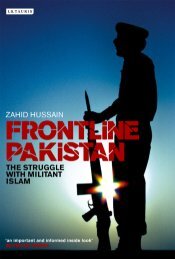Who Owns Pakistan - Yimg
Who Owns Pakistan - Yimg
Who Owns Pakistan - Yimg
Create successful ePaper yourself
Turn your PDF publications into a flip-book with our unique Google optimized e-Paper software.
Unlisted Companies<br />
1 Nishat Finishing Mills<br />
2 Nishat Capital Management<br />
3 Trust Management Services<br />
4 Chunian Fibre<br />
5 Nishat Europe<br />
6 Newbery Mansha<br />
7 Maple Leaf Electric Company<br />
8 D G Khan Electric Company<br />
The Saigols<br />
Wealth by itself is a curse.<br />
Yusuf Saigol, The Friday Times 20.5.93.<br />
The Saigols moderately describe themselves as " an erstwhile family of traders "<br />
but they are <strong>Pakistan</strong>'s Tatas and Birlas and have remained <strong>Pakistan</strong>'s wealthiest<br />
industrial clan for last five decades despite the fluctuations in their fortunes and a<br />
brief interlude (1972-77) during which they tried their luck in Saudi Arabia.<br />
" The first LC for a textile mills at the State Bank in independent <strong>Pakistan</strong> was<br />
opened for Kohinoor Textile Mills" set up at an esteemed cost of Rs 8 million in<br />
1948, Nasim Saigol said in an interview with the author.<br />
Amin Saigol, the founder of Saigol dynasty hailed from village Khotian, now<br />
Saigolabad in Jehlum and had migrated to Calcutta in 1890 where he started a<br />
shoe shop which led tho Bihar Rubber Works in 1938, later christened as Koh-i-<br />
Noor Rubber Works. It was one of the biggest rubber manufacturing concerns of<br />
pre-partitioned India.<br />
Amin Saigol had four sons, of which three- Yusuf Saigol, Bashir Saigol and<br />
Sayed Saigol migrated to <strong>Pakistan</strong> in August 1947 but fourth Gul Saigol stayed<br />
back in India taking care of the leftover business until it was expropriated by<br />
Indian govt, as enemy property in the 1965 war.<br />
The Saigols have grown with country, setting up factory after factory, industry<br />
after industry. Their biggest project was Kala Shah Kaku Chemical Complex near<br />
Lahore which comprised five units namely Kohinoor Rayan Ltd, United<br />
Chemicals, Insecticides (<strong>Pakistan</strong>) Ltd, Kohinoor Oil Mills Ltd and Kohinoor<br />
Engineering Ltd. Starting with a textile mills in 1947, in less than two decades,<br />
they had their fingers in almost every business in <strong>Pakistan</strong> ranging from<br />
142













